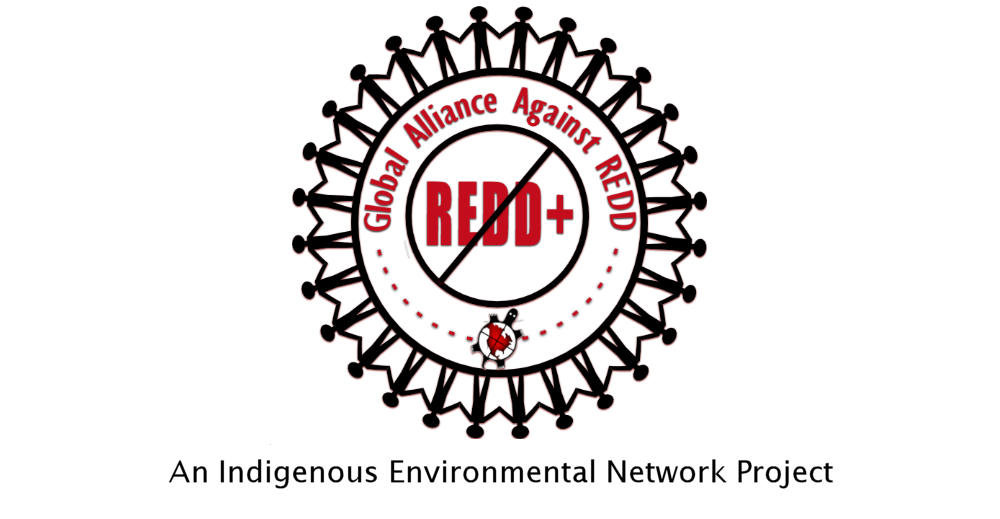Air France: Sponsor of COP21 and REDD
 The UN climate negotiations that will take place in Paris are sponsored by a series of polluting companies. Among these companies are two that are also involved in REDD projects: Air France and BNP Paribas.
The UN climate negotiations that will take place in Paris are sponsored by a series of polluting companies. Among these companies are two that are also involved in REDD projects: Air France and BNP Paribas.
Today we’ll look at Air France, and at BNP Paribas in a future post.
Air France is an airline company. Aviation is the world’s fastest growing source of greenhouse gas emissions. The aim of the UNFCCC is supposedly to reduce greenhouse gas emissions. So why on earth would the organisers of COP21 accept money from an airline company?
Aviation accounts for 2% of global emissions, but in rich countries it’s way more…
Air France points out on its website that, “The air transport sector contributes around 2% of global CO2 emissions”. The source for this statement is the IPCC’s fourth Assessment Report, published in 2007. So far, so good.
But the 2% figure hides a multitude of sins. More people in rich countries fly than in poor countries. Many people (especially poor people) don’t fly at all. In 2010, the Guardianestimated that in the UK, aviation’s impact is around 13-15% of total greenhouse gas emissions. A small number of regular flyers accounts for a large proportion of these emissions.
So what is an airline company to do? More flights presumably means more profits. And vice versa. No company has a mandate from its shareholders to reduce profits. So here’s Air France’s corporate vision on climate change:
We aim to reach a sustainable balance between aviation growth and the control of CO2 emissions by playing our part in the worldwide effort, mobilizing our industry and reducing our own impact.
Which amounts to handful of words promising very little.
REDD in Madagascar
In 2008, Air France decided to take action. Not by encouraging people to stop flying, obviously. Instead it invested €5 million over four years in a REDD project in Madagascar, the Holistic Conservation Programme for Forests (HCPF). (Incidentally, in 2014, Air France had revenues of €24.9 billion.)
Air France is delighted with the HCPF. “We have achieved or exceeded all our targets”, Air France’s Pierre Caussade told Sophie Chapelle from the news website Basta!.
“This project was developed partly to help local communities better manage their livelihoods and improve their living conditions. But there was also a scientific aspect, consistent with our concerns about climate change. We estimate that the programme will enable us to reduce emissions caused by deforestation by 35 billion tons of CO2.
(Caussade was quoting from the website of Good Planet, one of the NGOs that worked on the project. The page has now been removed, but here’s an archive copy. The Good Planet website now lists the project as completed, and corrects the figure to 35 million tons of CO2 over 20 years.)
The reality, as Amis de la Terre points out, is that large areas of forest have been taken away from local communities.
So that a small minority can continue to pollute the planet, we require the world’s poorest people to change their way of life: forests and land are no longer natural areas but have become stocks of carbon that must be protected. Worse, to keep an eye on fraudsters, a forest police has been set up: its mission is to track down villagers who clear patches of forest to grow food to feed themselves. Anybody caught in the act risks a heavy fine. If the individual is unable to pay, they are sent to prison. And as if patrols on the ground were not enough, aeroplanes fly above the villages to keep a better eye on them!
Conservation by coercion
The project is run by WWF Madagascar. One of the villagers affected by the REDD project explained how WWF had failed to consult with villagers, let alone carry out a process of free, prior informed consent:
“We are asking the WWF to show us which areas are protected and which are not, that is, where we can get firewood and wood to build our houses in order to provide for our families. But above all, these things must be discussed with all the villagers. We can’t make decisions on our own.”
Another villager pointed out that neither information about the project nor money reaches the villages. “There is no compensation, only penalties to pay.”
In a recent article about forest conservation in Madagascar, Julia Jones, Professor of Conservation Science at Bangor University, notes that,
Key questions remain about how benefits from REDD+ payments will be distributed locally – the question of whether resources will be sufficient to compensate for lost livelihoods – and how the rights of those affected will be protected.
Bruno Ramamonjisoa, a professor of forestry at the University of Antananarivo in Madagascar, told Jones that,
[F]orest conservation in Madagascar will only be successful if the people dependent on forests, and their needs, are fully incorporated into conservation plans. Those developing the REDD+ policies must understand the real challenges facing forest-edge communities in Madagascar.”
Changes for the poor, not the rich
There is a serious ethical question here, as Sophie Chappelle points out in her 2013 report about the project published by Basta! and Amis de la Terre. Instead of addressing the root cause of climate change (burning fossil fuels) and changing the behaviour of the rich (who have most responsibility for climate change), this type of offset project allows the rich to continue their polluting lifestyles. Meanwhile, the poor are forced to change their behaviour. Chappelle writes:
When, for example, a company offers its clients the opportunity to offset their carbon emissions by financing a project like the HCPF, it equates leisure activities (air travel for holidays, the purchase of a computer) with fundamental rights (feeding oneself using slash-and-burn agriculture to clear land).
